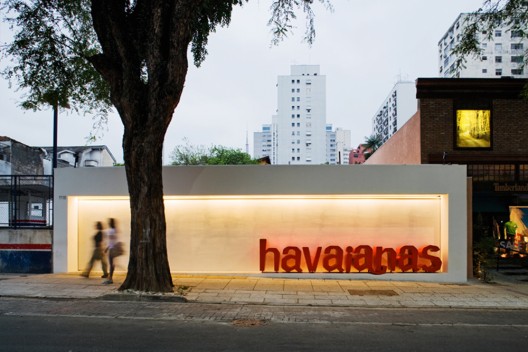The Rise Of Netflix-Like Services For Online Movie Streaming In Brazil
It seems that Netflix, which was unleashed this month in Brazil, is facing some trouble adapting to the prehistoric nature of Brazil’s Broadband internet. The last time I checked, the internet in my family’s house Brazil was still dial-up, they can’t even use the computer and the landline phone at the same time…it’s one or the other. The last time I was there, I tried to show people videos on youtube a couple of times, and the way that worked was by going to the video on youtube, leaving it open on the screen for about half an hour, and then returning to it to watch only when it was fully loaded. I also got berated a few times for being on the internet during the day, because in Brazil, you get charged when you surf online during the daytime (its cheaper at night).
…And these are only some of the horrors plaguing online Brazilians in a country where the infrastructure isn’t advancing fast enough to accommodate services like Netflix that are looking to supply one of the worlds largest and most active contingents of internet users with online video streaming.
So Is The Internet in Brazil Fast Enough?…
…No. Netflix has only recently arrived in Brazil and is offering Brazilians the chance to watch movies over the internet. But it has already been reported (for example, here, in this article by Folha,) that Netflix streaming in HD is choking on Brazilian broadband (and that’s on broadband!). Not everyone in Brazil has broadband…Only 20 percent of Brazil’s 42 million Internet users have a connection speed above 500 kilobytes per second, where a speed of around 800 kilobytes per second is the minimum required to stream movies online.
Netflix Unveils Latin America Service In Brazil

From HuffPost….
Broadband internet reaches a far smaller percentage of homes in Latin America than in the United States, and speeds are slower. Piracy of movies is among the most widespread on the planet, meaning many consumers can pick up a DVD or CD of the latest films for less than a dollar. Also, Netflix has little brand recognition in the region, and in the case of Brazil it already faces a homegrown competitor.
“This just won’t work in Ecuador or Costa Rica or even Mexico as it has in the U.S.,” said analyst Michael Pachter of Webbush Securities. “It’s going to depend on how many households have broadband access and what the quality of the content will be like.”
Only 20 percent of Brazil’s 42 million Internet users have a connection speed above 500 kilobytes per second, according to a May report from Ibope Nielsen Online. A speed of around 800 kilobytes per second is the minimum required to stream movies online.
Netflix subscribers across the region will be able to watch TV shows and movies streamed on a wide range of gadgets. Foreign and domestic content will be offered in Brazil, with some titles dubbed in Portuguese, Spanish or English, and people will also be able to opt for subtitling.
The service in Brazil will cost 14.99 reals per month (about $9), and new subscribers will get the first month for free.
(R$ 15 !?…in my opinion, that’s a little expensive for Brazil)
Who Are Netflix’s Competitors in Brazil?
There are a few Brazilian competitors to Netflix: NetMovies, Terra TV Video Store, Saraiva Digital and Muu. Below is a good comparison of the online streaming competition in Brazil. It’s in Portuguese, so if you need help with the terminology, click Here (and scroll all the way down) for some good Portuguese tech vocab.






















